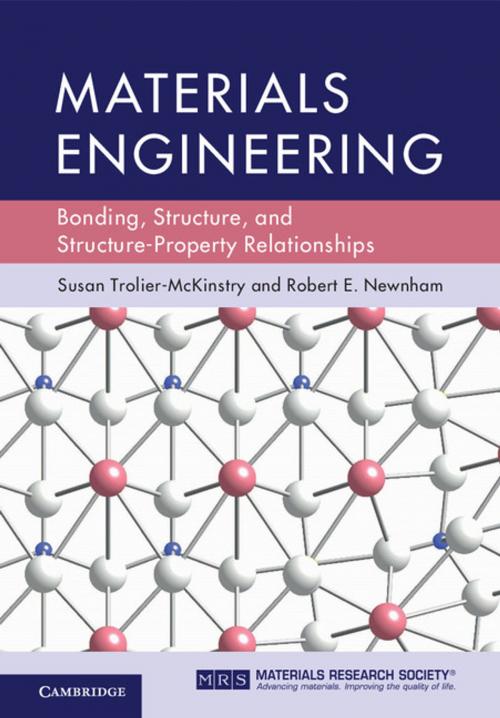Materials Engineering
Bonding, Structure, and Structure-Property Relationships
Nonfiction, Science & Nature, Technology, Material Science, Science| Author: | Susan Trolier-McKinstry, Robert E. Newnham | ISBN: | 9781108547093 |
| Publisher: | Cambridge University Press | Publication: | December 31, 2017 |
| Imprint: | Cambridge University Press | Language: | English |
| Author: | Susan Trolier-McKinstry, Robert E. Newnham |
| ISBN: | 9781108547093 |
| Publisher: | Cambridge University Press |
| Publication: | December 31, 2017 |
| Imprint: | Cambridge University Press |
| Language: | English |
Designed for both one- and two-semester courses, this textbook provides a succinct and easy-to-read introduction to crystal structures and structure-property relations. By linking together the fundamentals of bond strength and the arrangement of atoms in space with the mechanical, optical, magnetic and electrical properties that they control, students will gain an intuitive understanding of how different materials are suited to particular applications. The systematics of crystal structures are described for both organic and inorganic materials, with coverage including small molecular crystals, polymers, metals, ceramics and semiconductors. Hundreds of figures and practice problems help students gain an advanced, 3D understanding of how structure governs behavior, and a wealth of examples throughout show how the underlying theory is translated into practical devices. With solutions, video lectures and overheads available online for instructors, this is an excellent resource for graduates and senior undergraduates studying materials science and engineering.
Designed for both one- and two-semester courses, this textbook provides a succinct and easy-to-read introduction to crystal structures and structure-property relations. By linking together the fundamentals of bond strength and the arrangement of atoms in space with the mechanical, optical, magnetic and electrical properties that they control, students will gain an intuitive understanding of how different materials are suited to particular applications. The systematics of crystal structures are described for both organic and inorganic materials, with coverage including small molecular crystals, polymers, metals, ceramics and semiconductors. Hundreds of figures and practice problems help students gain an advanced, 3D understanding of how structure governs behavior, and a wealth of examples throughout show how the underlying theory is translated into practical devices. With solutions, video lectures and overheads available online for instructors, this is an excellent resource for graduates and senior undergraduates studying materials science and engineering.















